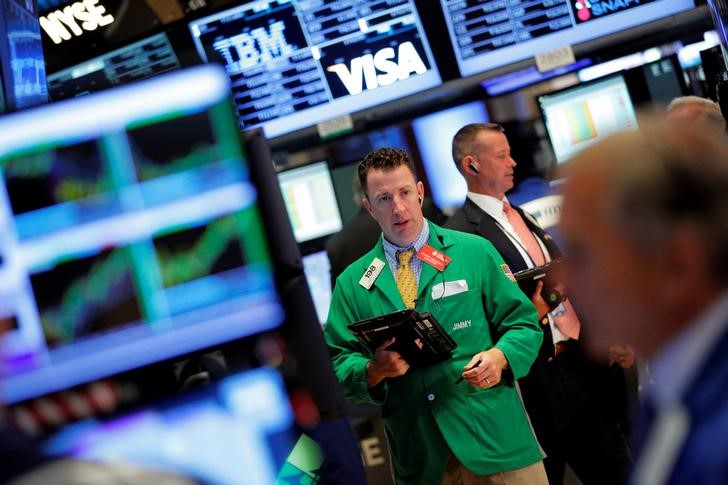The Bank of England could cut rates next week, Deutsche Bank says. Here’s why.
By Noreen Burke
Investing.com - U.S. stock futures pointed to a bounce at the open on Tuesday, rebounding from a 7% slump a day earlier, as hopes for stimulus measures eased investor fears over a global recession in the face of the coronavirus epidemic.
By 07:25 AM ET (1125 GMT), Dow futures added 992 points, or around 4.1%. Nasdaq 100 futures were up 4.2% and S&P 500 futures were up a similar amount.
Yields on benchmark U.S. 10-year Treasury debt more than doubled to 0.70% and those on German Bunds jumped around 20 basis points as investors pared some safe-haven holdings.
The gains came after the three major indices posted their biggest one-day percentage decline on Monday and the Dow tumbled as much as 2,000 points, as markets went into panic mode over the expected economic fallout from the coronavirus outbreak. Market sentiment was also hit by plunging oil prices following the breakdown of a crucial global oil pact.
But signs of policy action by the world's major economies to cushion the effects of the rapidly-spreading virus eased investor nerves over the prospects of a recession.
U.S. President Donald Trump on Monday to take "very major" steps to protect the economy and float the idea of a payroll tax cut with congressional Republicans.
Japan said it would spend another 430.8 billion yen ($4.1 billion) to ease the effects of the coronavirus outbreak and Italy's deputy economy minister announced that mortgage payments would be suspended as the country deals with the second-highest number of cases outside China.
Some of the biggest global investment banks, including JP Morgan, Citi and Barclays, now expect the Federal Reserve to cut U.S. interest rates to zero in the coming months as part of a mass global move to provide some ballast and liquidity to the financial system.
Elsewhere, U.S. crude futures rebounded 9.6% after falling by as much as 30% on Monday. That comes after reports saying that Saudi Arabia plans to sell some 12.3 million barrels of oil a day in April. Given that it is unlikely to be able to ramp up all its spare capacity so quickly, the reports suggest that the kingdom is planning to draw down stocks to maximize sales volumes - an extreme measure that is unlikely to be sustained.
--Reuters contributed to this report
